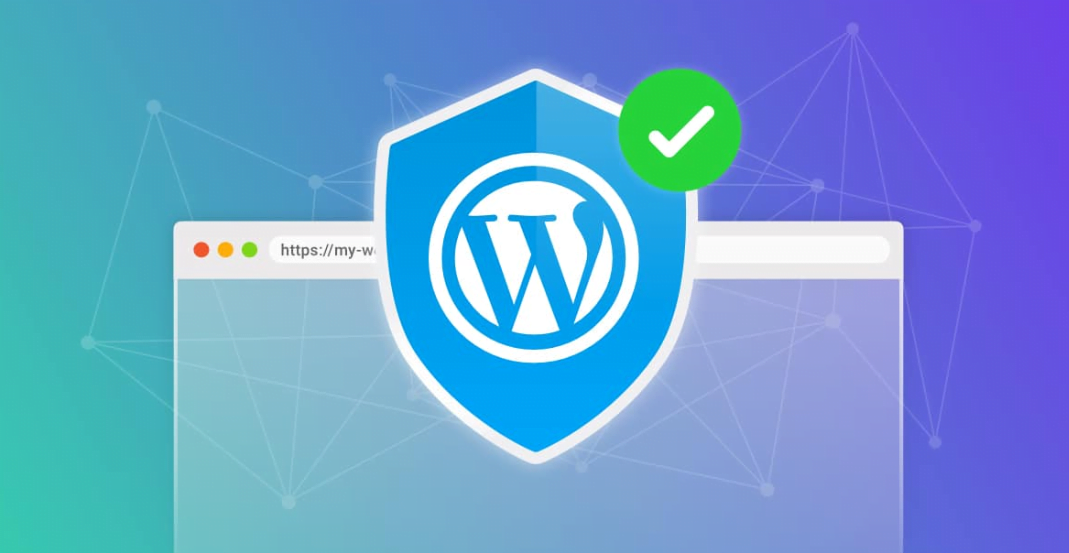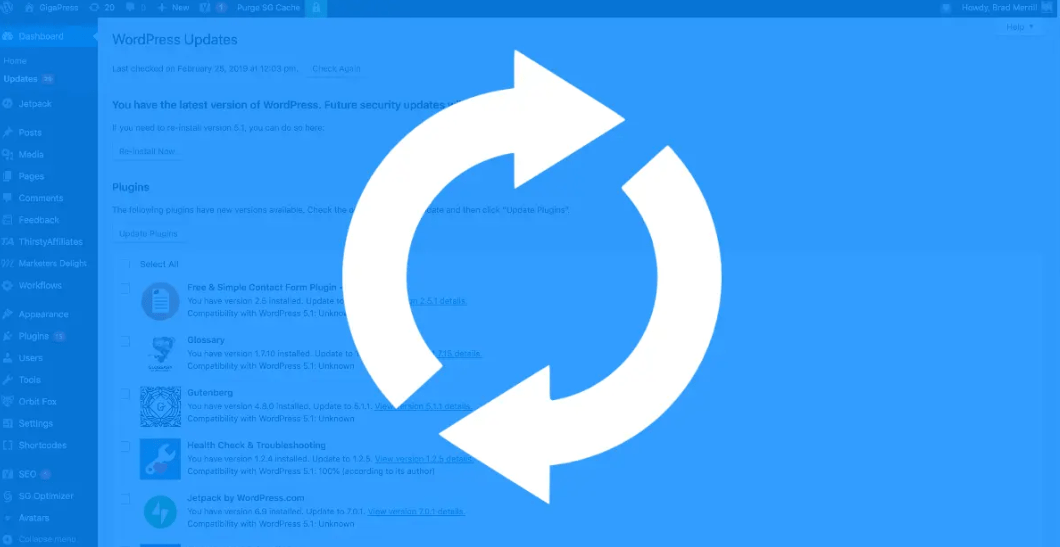In today’s digital time, website security is a fundamental factor. As the cyberattacks and threats keep increasing in numbers, you must take the necessary precautions to ensure that your WordPress website is secure. Here is the ultimate WordPress security guide to help you; learn and follow the necessary steps to protect your site and keep it free from hackers.
Understanding WordPress Security Basics
To effectively safeguard your WordPress site, a solid grasp of security fundamentals is indispensable. Recognizing the prevalent vulnerabilities that plague WordPress sites is the first line of defense against cyber threats. These weaknesses may be very wide-ranging, from weak passwords that haven’t been changed for a long time to updated software, outdated software, plugins, and themes of poor code, which poses a unique risk to the integrity of your site Self-educating yourself on these factors will again be a key, to aid you in the implementation of effective protective measures that could in the end guarantee you of the safety of your sites encounters.
As well as this, website hardening techniques including file permission and database security imperative to understand the importance of the same. These techniques aid in diminishing an attack surface from which they might climb your site, consequently making it much harder to make an attack. Learning about the workings of the WordPress security networks which include the job roles and relationships of the components lays the groundwork for a sturdy health approach.
This is not just securing your WordPress website; it is about having a mindset of security, & you have to be thoughtful of how your actions are contributing to the overall protection of your WordPress website.
The Importance of Choosing Secure Hosting
Selecting the right hosting provider is a crucial step in fortifying your WordPress site against cyber threats. A hosting service equipped with robust security protocols acts as the first line of defense, safeguarding your site from various attacks. It is not less important to find out if the host could provide utilities that automatically update your site and ensure your site operates the most up-to-date and secure versions of software.
What is more crucial, a good host should provide the security on server-system level: the firewall and intrusion detection system. One of the best ways to ensure a strong level of protection against threats is to host your website with a provider that regularly conducts security audits and has a well-designed proactive threat detection framework.
Moreover, having a host that gives you dedicated customer support as far as security concerns is priceless because they relieve you of the entire burden of security. Having security as a priority when deciding on a hosting choice, you will create a strong space where no threats can undermine the security of your WordPress environment, and therefore, having it involved as part of your security strategy is essential.
Keeping WordPress Updated: A Key to Security
It is essential to keep all your WP versions, themes, and plugins up to date because outdated versions may have some unpatched security holes that a hacker could utilize. As developers learn about them, they do the fixing by releasing a new build. Failing to update leaves your site open to attacks specifically designed to target these weaknesses. Browser automation is an easy way to be sure you don’t have to look for updates because the browser will run the most secure versions without you doing it manually.
Additionally, before updating, it’s wise to verify the compatibility of new updates with your existing site to prevent any disruptions. Regularly scheduled checks for updates should be a part of your site maintenance routine, ensuring that your defenses are as strong as possible against the ever-evolving landscape of cyber threats. In addition, it strengthens the security level and has an influence also on the speed and the speed of surfing. Thus, an even more awesome experience is set for your visitors.
Strengthening Login Procedures and User Permissions
Enhancing the security of your WordPress site begins with robust login procedures and meticulous management of user permissions. The practical development of complex passwords (ones that are hard to guess) which are changed frequently is what gives us the required level of security. Incorporating features like two-factor authentication (2FA) adds an extra layer of defense, making it significantly harder for unauthorized individuals to gain access even if they manage to decipher a user’s password.
Limiting the number of login attempts can deter brute force attacks, where hackers use automated methods to guess passwords. Equally important is the strict regulation of user roles and permissions on your site. The principle of least privilege should be adopted while assigning roles to users so that users have just what is necessary to complete their tasks without compromising site security.
You can boost the system’s security to a large extent by controlling which user can access particular site areas and by blocking those unintentional changes that can lead to site insecurities. These steps not only make your site more powerful but create a security culture within your users which, of cause, has great influence and results in an entire improvement of your WordPress site.
The Role of SSL Certificates in WordPress Security
SSL certificates play an important role in the security system of any WordPress-based site. They secure the quality of data transfer between the visitor’s browser and server through encryption. This encryption therefore becomes very crucial for people particularly those who transmit their personal information, such as credit and/or login details, which would not be purloined by illegitimate actors.
Encrypted SSL certificates both guarantee data safety and inspire credibility and trustworthiness of the website. Having secure sites more than Google shows the best search rankings thus giving this as the extra reason why anyone should think of its implementation. To install an SSL certificate, you typically need to purchase one from a trusted certificate authority (CA) and configure it through your hosting environment.
The hosting providers can package the SSL certificates for free thus the owners of the site will find the installation process very easy. The move towards a fully secure web is gaining momentum, and having an SSL certificate is fast becoming a necessity rather than an option. Implementation of this routine is not the only thing that will increase your defenses but will also symbolize to the users that their security on your website is a priority no 1.
Implementing Advanced Security Measures
To elevate the security of your WordPress site, diving into advanced security measures is key. One of the most effective ways is using comprehensive security plugins that are properly integrated. By extension, these plugins feature a set of tools that are in place the check and guard your site: malware scan, firewall protection, and prevention of traffic coming from bad online sites. Considering the fact, WAF is a type of firewall that could be used to sift the incoming traffic and filter out threats before they arrive at the site.
The last but not least item is to get the 2FA (Two-Factor Authentication) for an added security layer. They will be able to ask for the two items of information, which has to be given by the users, first, before granting the authority to the right person. This will reduce the chances of unauthorized entry to a greater degree. Adopting such a high alert, your website activity must be rigorously reviewed to verify if there is any suspicious activity. This kind of upfront approach enables the timely pinpointing and curtailing of probable security problems which prevents them from worsening to the high-risk level.
Leveraging tools like security audits and vulnerability scans can uncover hidden weaknesses, providing an opportunity to reinforce your site’s defenses. With such security steps in place, you get a more durable and fault-free WordPress site that is now fully equipped to repel complex cyber-attacks and keep your web presence intact.
Regular Backups: Your Safety Net
Implementing a consistent backup strategy is akin to establishing a robust safety net for your WordPress site. In the unfortunate event of a security breach or technical malfunction, having access to recent backups allows for a swift recovery, minimizing downtime and the potential loss of critical data. It is recommended to automate the backup process, ensuring that your website’s content, databases, and files are regularly copied without manual intervention.
Diversifying the network of backup storage by keeping backups at different secure places i. e. cloud storage services and physical drives, create an extra layer of security on top of the system already in place. Not only that it protects the data lost due to the issues of a website, but it also saves the backup data from the loss itself. The perpetual testing of these backups for integrity and restorability is pivotal because that is the only way to ensure that the aforementioned backups can be used to restore your website to its fully functional state in time of need.
Through continuous backups that make up part of your regular website maintenance, you establish a reliable fallback plan that builds your site’s durability in unanticipated obstacles.
Staying Informed About WordPress Security
In the continuously changing growth of cyber security, one thing is certain: knowledge is power. We must be autonomous enough to respond to and block emerging risks, yet we need the latest picture of the dynamics in play when making security decisions. Wisely utilize the hours to read opinionated security platforms, and take advantage of the experts they follow because that is their skills.
Subscribing to specialized security newsletters is if you are in search of updates, tips, and alerts anywhere and exactly when you need them. This enables their users to take action against possible vulnerabilities. Similarly, participation in security matters-based forums and groups will be there to give out an enormous quantity of knowledge such as solving specific issues, negotiating preventive strategies, and so on. Such talks will keep you abreast of recent security updates and provide the chance to look at the work of the WordPress community with its case studies and solutions, all this will help to improve your security experience with using WordPress.
Digital venue meetings or online workshops will be held to expand your understanding of the complicated security issues and to provide you with the algorithms and skills that you will need to protect your site successfully. Meanwhile when you maintain an ongoing vigilance in popular social zones, thereby the WordPress security measures that you take turn out to be completely up-to-date and sufficiently tight, protecting the online security which is an issue of utmost global concern.


